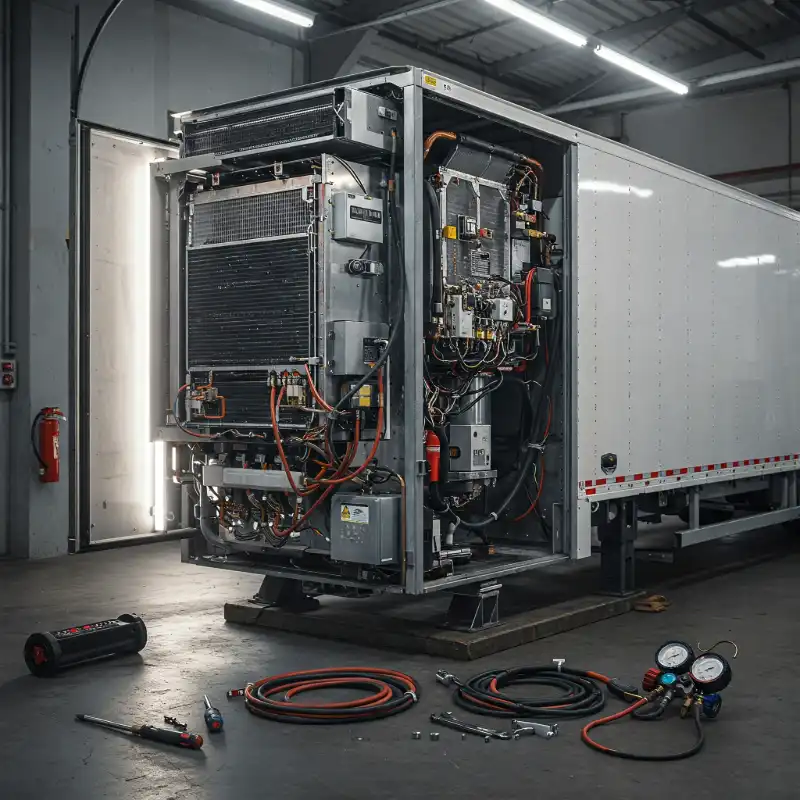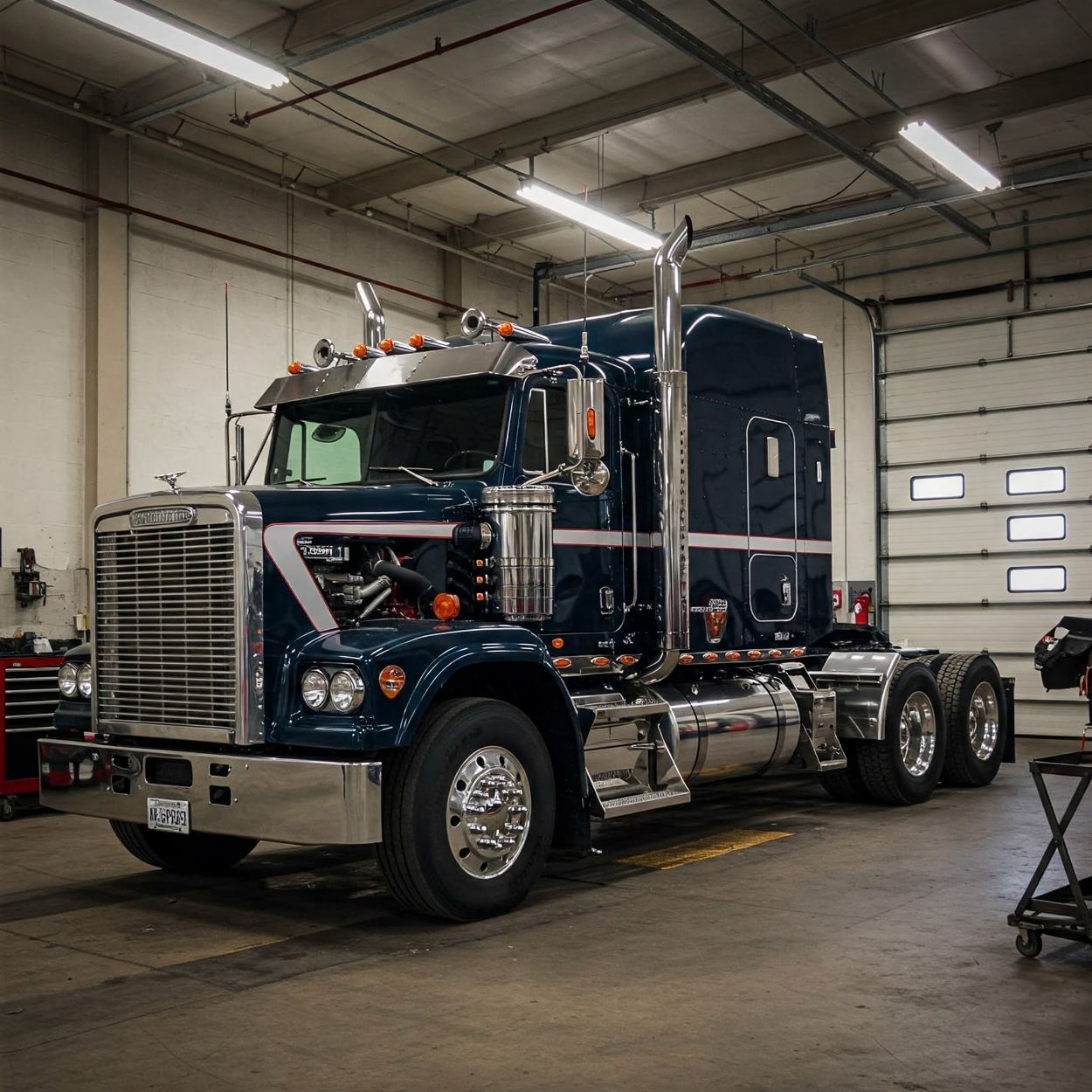
At Integrity Fleet Services in Houston, we understand the importance of keeping your rig in top-notch condition. One of the critical aspects often overlooked in truck maintenance is the wheel-end. This guide aims to shed light on common wheel-end issues and how to prevent them, ensuring your journeys are safe and efficient.
What Causes Wheel-End Issues?
Wheel-end issues primarily arise from three sources: improper lubrication, misaligned components, and bearing failure. These problems can lead to severe consequences, including wheel separation, which can be catastrophic on the road.
Improper Lubrication
Lubrication is what protects wheel-end components from friction. Without adequate lubrication, the bearings can overheat and wear out prematurely. At Integrity Fleet Services, we emphasize the importance of regular lubrication checks and using the right type of grease for your specific wheel-end setup.
Misadjusted Components
Wheel-end components must be precisely adjusted to function correctly. Misadjusted components, such as loose bearings or improperly tightened nuts, can cause excessive wear and tear. This is why regular maintenance and professional inspections are crucial. Our Houston-based team can ensure your wheel-end components are correctly adjusted to avoid these issues.
Bearing Failure
Bearings are vital for smooth wheel rotation. When bearings fail, it often results from contamination, excessive load, or inadequate lubrication. Identifying early signs of bearing failure, such as unusual noises or vibrations, can save you from more significant, costly repairs down the line.
How Often Should I Perform Wheel-End Maintenance?
Performing wheel-end maintenance regularly is crucial. The frequency of maintenance depends on various factors, including your truck's mileage, load weights, and operating conditions. Generally, it's advisable to inspect and service wheel-ends every 100,000 miles or annually, whichever comes first. For Houston truckers facing heavy traffic and heat, more frequent checks might be necessary.
What Are the Signs of Wheel-End Issues?
Recognizing the early signs of wheel-end issues can prevent major breakdowns. Here are some symptoms to watch out for:
Unusual Noises
If you hear grinding, humming, or squealing noises from the wheels, it could indicate bearing problems. These sounds typically worsen with speed and may signal that your bearings are worn out or damaged.
Vibration and Wobbling
Excessive vibration or wobbling of the wheels, especially at higher speeds, is a clear indicator of wheel-end issues. This could be due to loose bearings or misaligned components, both of which require immediate attention.
Uneven Tire Wear
Uneven tire wear often points to misaligned wheel-end components. Regularly inspecting your tires for unusual wear patterns can help you catch and address wheel-end problems early.
Preventing Wheel-End Problems
Preventive maintenance is key to avoiding wheel-end issues. Here are some tips to keep your wheel-ends in excellent condition:
Regular Inspections
Schedule regular inspections with a professional service like Integrity Fleet Services. Our experts in Houston can identify potential problems before they escalate, ensuring your wheel-ends are always in optimal condition.
Proper Lubrication
Always use the recommended type of grease for your wheel-ends and apply it at the suggested intervals. Over-lubrication can be just as harmful as under-lubrication, so following manufacturer guidelines is crucial.
Correct Adjustments
Ensure that all wheel-end components are correctly adjusted. This includes checking the torque of wheel nuts and the alignment of bearings. Professional services can provide precise adjustments to prevent premature wear.
FAQs about Wheel-End Issues
How can I tell if my wheel bearings are bad?
Bad wheel bearings often produce a distinct noise, such as grinding or humming, that gets louder with speed. Additionally, you may notice vibrations or wobbling in the wheels. If you suspect bearing issues, it's best to have them inspected by professionals immediately.
What happens if wheel-end issues are not addressed?
Ignoring wheel-end issues can lead to severe consequences, including wheel separation, which can be life-threatening on the road. It can also cause significant damage to your truck's suspension and brake systems, leading to costly repairs.
Can I perform wheel-end maintenance myself?
While basic checks can be done by truckers, wheel-end maintenance is best left to professionals. Proper lubrication, component adjustment, and bearing inspections require specialized knowledge and tools. Integrity Fleet Services in Houston is equipped to handle these tasks efficiently.
Final Thoughts: Schedule an Appointment Today
Preventing wheel-end issues is crucial for the safety and performance of your truck. Regular maintenance, proper lubrication, and professional inspections are essential to avoid costly and dangerous problems. At Integrity Fleet Services, we are dedicated to keeping Houston's trucks on the road and in prime condition. Contact us today to schedule your wheel-end maintenance and ensure your rig is always road-ready.
More Articles


7 Errors in Refrigerated Truck Maintenance and Their Fixes
7 Errors in Refrigerated Truck Maintenance and Their Fixes
Avoid costly breakdowns and cargo loss with proper refrigerated truck maintenance. Learn about the top 7 reefer maintenance mistakes and how to fix them.


What Are the Benefits of Telematics in Managing Food Delivery Fleets?
What Are the Benefits of Telematics in Managing Food Delivery Fleets?
Discover how telematics can optimize your food delivery fleet in Texas. Reduce fuel costs, improve efficiency, enhance safety, and ensure faster deliveries with real-time tracking and smart analytics.


How to Reduce Fuel Costs in Your Grocery Delivery Fleet
How to Reduce Fuel Costs in Your Grocery Delivery Fleet
Discover effective ways to cut fuel costs in your grocery delivery fleet with tips on maintenance, route optimization, and technology in Texas.
